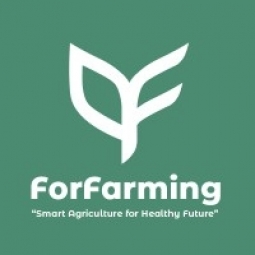Technology Category
- Analytics & Modeling - Computer Vision Software
- Infrastructure as a Service (IaaS) - Private Cloud
Applicable Industries
- Consumer Goods
- Retail
Applicable Functions
- Procurement
- Sales & Marketing
Use Cases
- Clinical Image Analysis
- Retail Store Automation
Services
- Testing & Certification
About The Customer
CarrefourSA is one of the largest grocery retail chains in Turkey, with over 750 stores. The company is known for its focus on providing high-quality products at affordable prices. In 2020, CarrefourSA heavily invested in supporting and inspecting local producers to provide sustainable, safe, high-quality, and fresh locally produced fruits and vegetables to its customers under its private label brand. Despite facing challenges due to the global pandemic and a shift in consumer behavior, CarrefourSA sought to differentiate itself through its commitment to quality and sustainability.
The Challenge
CarrefourSA, one of the largest retail chains in Turkey, faced significant revenue decline in 2020 due to the global pandemic, a shift in consumer behavior towards online grocery shopping, and the country's worsening economic situation. Despite investing in online deliveries, CarrefourSA struggled to differentiate itself from other successful online grocery delivery companies and physical store-based competitors. To stand out, CarrefourSA launched the 'Right Choice at CarrefourSA' campaign, aiming to provide high-quality, fresh, safe, and sustainably sourced products from responsible local producers under its private label brand. However, the company needed a food transparency solution to facilitate and expedite inspections, and to prove and promote their superior processes and product quality to consumers.
The Solution
CarrefourSA implemented Trusty by ForFarming, a platform that transforms data from production and procurement processes into consumer-facing communications. The platform was used to prove the quality, safety, sustainability, and freshness of CarrefourSA's products. The implementation process involved setting up transparency infrastructure for small-scale producers of premium fruits and vegetables, registering them on Trusty, and designing customized landing pages. CarrefourSA delegated an employee to oversee the producers using Trusty, and ForFarming assisted with onboarding. Once all parties were onboarded, the producers began logging their operations on Trusty, which were inspected by CarrefourSA employees. After all processes were complete, QR codes were printed for each batch, which customers could scan to view production details. CarrefourSA marketed the transparent products as premium and strategically placed them in aisles to boost sales.
Operational Impact
Quantitative Benefit

Case Study missing?
Start adding your own!
Register with your work email and create a new case study profile for your business.
Related Case Studies.
.png)
Case Study
Improving Vending Machine Profitability with the Internet of Things (IoT)
The vending industry is undergoing a sea change, taking advantage of new technologies to go beyond just delivering snacks to creating a new retail location. Intelligent vending machines can be found in many public locations as well as company facilities, selling different types of goods and services, including even computer accessories, gold bars, tickets, and office supplies. With increasing sophistication, they may also provide time- and location-based data pertaining to sales, inventory, and customer preferences. But at the end of the day, vending machine operators know greater profitability is driven by higher sales and lower operating costs.

Case Study
Improving Production Line Efficiency with Ethernet Micro RTU Controller
Moxa was asked to provide a connectivity solution for one of the world's leading cosmetics companies. This multinational corporation, with retail presence in 130 countries, 23 global braches, and over 66,000 employees, sought to improve the efficiency of their production process by migrating from manual monitoring to an automatic productivity monitoring system. The production line was being monitored by ABB Real-TPI, a factory information system that offers data collection and analysis to improve plant efficiency. Due to software limitations, the customer needed an OPC server and a corresponding I/O solution to collect data from additional sensor devices for the Real-TPI system. The goal is to enable the factory information system to more thoroughly collect data from every corner of the production line. This will improve its ability to measure Overall Equipment Effectiveness (OEE) and translate into increased production efficiencies. System Requirements • Instant status updates while still consuming minimal bandwidth to relieve strain on limited factory networks • Interoperable with ABB Real-TPI • Small form factor appropriate for deployment where space is scarce • Remote software management and configuration to simplify operations

Case Study
Digital Retail Security Solutions
Sennco wanted to help its retail customers increase sales and profits by developing an innovative alarm system as opposed to conventional connected alarms that are permanently tethered to display products. These traditional security systems were cumbersome and intrusive to the customer shopping experience. Additionally, they provided no useful data or analytics.

Case Study
How Sirqul’s IoT Platform is Crafting Carrefour’s New In-Store Experiences
Carrefour Taiwan’s goal is to be completely digital by end of 2018. Out-dated manual methods for analysis and assumptions limited Carrefour’s ability to change the customer experience and were void of real-time decision-making capabilities. Rather than relying solely on sales data, assumptions, and disparate systems, Carrefour Taiwan’s CEO led an initiative to find a connected IoT solution that could give the team the ability to make real-time changes and more informed decisions. Prior to implementing, Carrefour struggled to address their conversion rates and did not have the proper insights into the customer decision-making process nor how to make an immediate impact without losing customer confidence.









